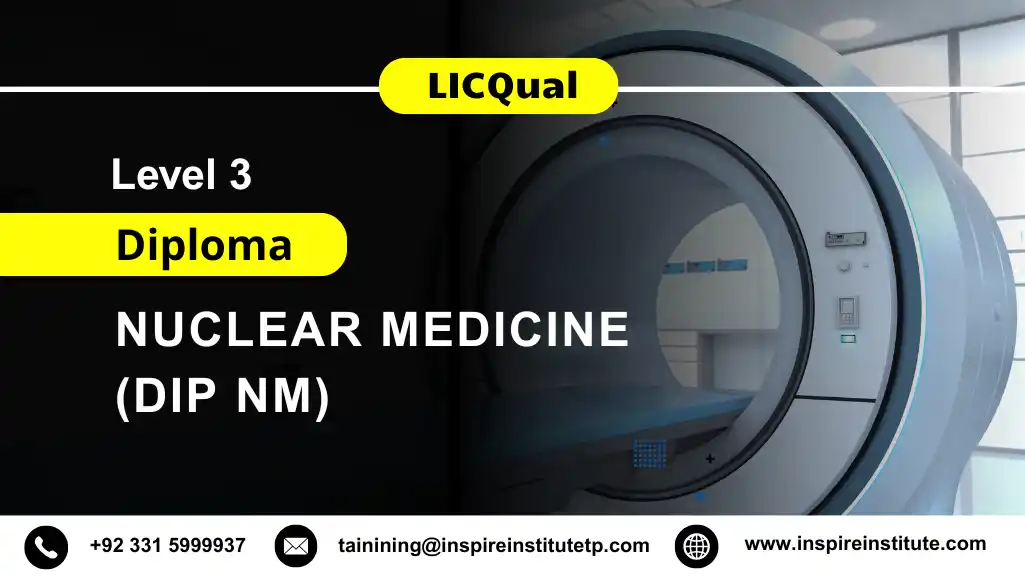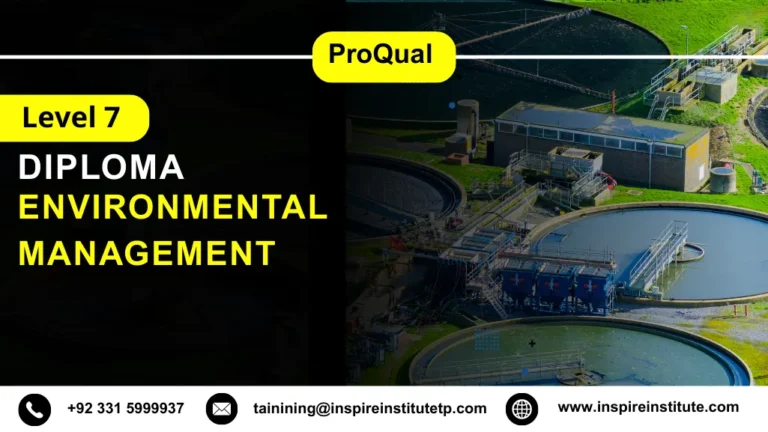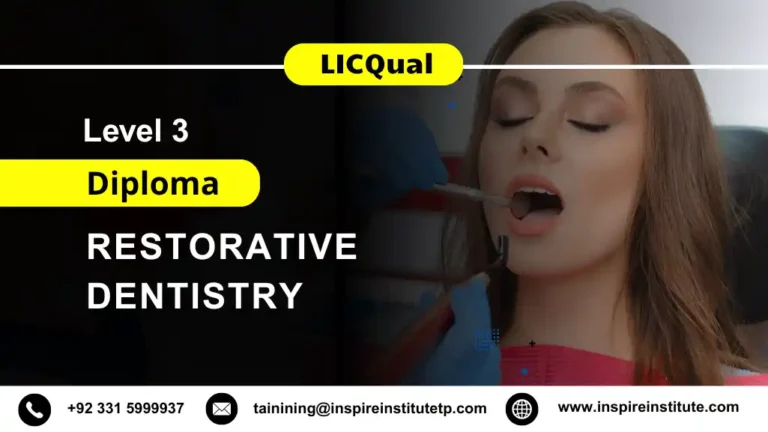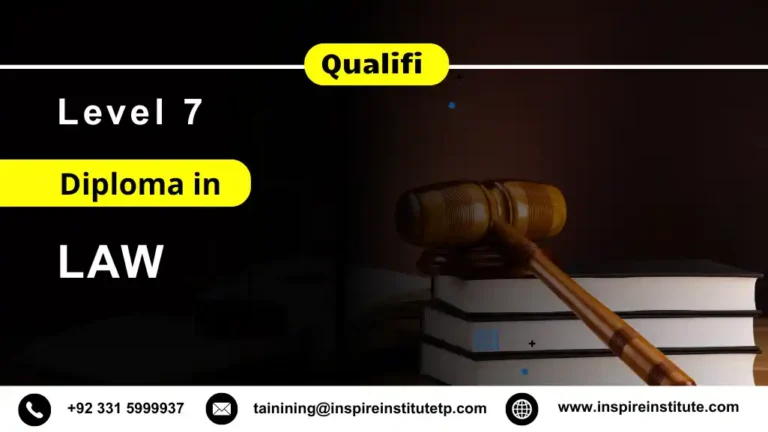LICQual Level 3 Diploma in Nuclear Medicine (Dip NM)
The LICQual Level 3 Diploma in Nuclear Medicine (Dip NM) is a UK-accredited qualification designed to equip learners with the essential knowledge, technical expertise, and practical understanding of nuclear medicine and diagnostic imaging. As an integral part of modern healthcare, nuclear medicine plays a crucial role in diagnosing and treating diseases using advanced radiopharmaceuticals and imaging technologies. This comprehensive programme enables learners to develop specialized skills that are highly valued in hospitals, diagnostic centers, and research institutions worldwide.
The course provides a deep insight into the principles of nuclear medicine, radiation physics, radiopharmaceuticals, and imaging instrumentation. Learners explore how radioactive substances are used to study organ function, detect abnormalities, and guide targeted treatments. By mastering the fundamental concepts and safety protocols, students gain the expertise required to support accurate diagnosis and enhance patient outcomes in medical imaging and nuclear diagnostics.
Through the LICQual Level 3 Diploma in Nuclear Medicine (Dip NM), learners develop the ability to operate imaging systems such as PET and SPECT scanners, interpret diagnostic data, and adhere to international radiation safety standards. The curriculum bridges theory and practice, preparing learners to contribute effectively in clinical environments, research labs, and public health settings. This focus on applied learning ensures graduates can confidently perform within multidisciplinary medical teams.
The diploma emphasizes practical application, where students gain hands-on experience in nuclear imaging procedures, radiopharmaceutical preparation, and quality control measures. By engaging with real-world case studies and simulation-based training, learners enhance their analytical, problem-solving, and patient-care skills. This combination of technical proficiency and clinical competence strengthens their readiness for dynamic roles in healthcare diagnostics.
One of the defining features of the LICQual Level 3 Diploma in Nuclear Medicine (Dip NM) is its flexible, assignment-based structure. This format allows working professionals, healthcare assistants, and aspiring technologists to pursue academic and career advancement at their own pace. Learners can balance professional responsibilities while gaining specialized education aligned with international healthcare and radiology standards.
Upon completion, graduates earn a globally recognized qualification in nuclear medicine, opening diverse career opportunities across medical imaging departments, radiology units, pharmaceutical industries, and research institutions. The diploma also serves as a foundation for advanced studies in radiology, biomedical science, or nuclear medicine technology. Through this course, learners not only gain expertise in nuclear medicine but also contribute to advancing diagnostic excellence and improving global healthcare outcomes.
Why Choose this Qualification
The LICQual Level 3 Diploma in Nuclear Medicine (Dip NM) is a specialized qualification designed to equip learners with the essential knowledge, technical skills, and clinical competence required for a professional career in nuclear medicine and diagnostic imaging. Nuclear medicine is a critical branch of healthcare that utilizes radiopharmaceuticals and imaging technologies to diagnose, monitor, and treat various diseases, including cancer, cardiovascular disorders, and endocrine conditions. Choosing this internationally recognized diploma strengthens your academic foundation while preparing you to play a vital role in advanced diagnostic services and patient care.
Key Reasons to Choose this Qualification
Comprehensive Understanding of Nuclear Medicine
- Gain a strong foundation in radiation physics, radiopharmaceuticals, and nuclear imaging principles.
- Learn about the diagnosis, monitoring, and treatment of medical conditions using PET, SPECT, and gamma camera imaging.
- Study the latest imaging technologies, radiation safety protocols, and quality control measures.
- Understand the role of nuclear medicine in oncology, cardiology, neurology, and endocrinology.
- Develop knowledge in patient preparation, radiopharmaceutical handling, and regulatory compliance.
Practical Skills for Real-World Diagnostic Imaging
- Acquire hands-on knowledge to operate nuclear medicine imaging systems safely and effectively.
- Learn essential techniques for preparing and administering radiopharmaceuticals.
- Apply evidence-based practices in image acquisition, interpretation, and clinical reporting.
- Develop analytical and decision-making skills through case studies, simulations, and clinical scenarios.
- Gain competence in maintaining radiation safety and infection control standards.
Career-Ready Qualification
- Enhance employability with internationally recognized skills in nuclear medicine and diagnostic imaging.
- Prepare for roles in hospitals, diagnostic centers, research facilities, and nuclear medicine departments.
- Build a strong foundation for progressing into advanced medical imaging, radiology, or nuclear medicine studies.
- Demonstrate professional competence through an accredited and globally respected qualification.
Strong Focus on Patient-Centered Care
- Develop effective communication skills for interacting with patients undergoing nuclear imaging procedures.
- Learn to provide empathetic, ethical, and culturally sensitive care in nuclear medicine practice.
- Understand techniques for patient education on diagnostic procedures, radiation safety, and post-procedure care.
- Gain confidence in supporting patients through preparation, scanning, and follow-up care.
- Apply best practices in patient monitoring and risk management.
Internationally Recognized Qualification
- Earn a diploma awarded by LICQual, a globally recognized awarding body known for academic excellence.
- Open doors to international career opportunities in nuclear medicine and medical imaging.
- Gain recognition and credibility among healthcare employers, professional networks, and regulatory bodies.
- Use this qualification as a stepping stone for advanced certifications in nuclear medicine, radiology, or molecular imaging.
Flexible and Structured Learning
- Benefit from a well-organized curriculum tailored for step-by-step academic and professional growth.
- Learn at your own pace through an assignment-based assessment system that enhances understanding and skill application.
- Access comprehensive study materials, resources, and case-based content focused on nuclear medicine practice.
- Balance your studies with personal or professional commitments while maintaining high academic performance.
Ethical and Professional Development
- Gain knowledge of professional standards, ethical conduct, and radiation safety in nuclear medicine.
- Understand patient rights, confidentiality, and responsible healthcare delivery.
- Develop leadership qualities and confidence in handling complex nuclear medicine procedures.
- Learn to make informed, ethical decisions while maintaining high professional integrity.
Contribution to Healthcare and Society
- Play an active role in promoting advanced diagnostic care and early disease detection.
- Support initiatives in oncology, cardiology, neurology, and endocrine health through nuclear medicine applications.
- Build a career that combines professional advancement with meaningful healthcare impact.
- Help improve patient outcomes and quality of life through skilled nuclear medicine practice.
The LICQual Level 3 Diploma in Nuclear Medicine (Dip NM) is more than an academic credential—it is a professional pathway that integrates medical science, clinical expertise, and patient-centered care. With its blend of theoretical knowledge, practical skills, ethical training, and international recognition, this diploma empowers learners to excel in nuclear medicine and diagnostic imaging, preparing them to make a meaningful contribution to global healthcare.sion and transforming lives worldwide..
Course Overview
LICQual UK Awarding Body
Average Completion Time:
4-12 Months
Study Units: 6 Units
Evidence & Assignment Based
Mandatory Units
Who Should Take This Course
The LICQual Level 3 Diploma in Nuclear Medicine (Dip NM) is a specialized qualification designed for individuals passionate about diagnostic imaging and aspiring to build a strong academic and professional foundation in nuclear medicine. This vital field of healthcare focuses on the use of radiopharmaceuticals, nuclear imaging, and radiation-based techniques for the diagnosis, monitoring, and treatment of various medical conditions, including cancer, cardiovascular diseases, neurological disorders, and endocrine abnormalities. By choosing this internationally recognized diploma, learners prepare for a rewarding career dedicated to enhancing patient care and advancing medical diagnostics.
This Course is Suitable For
Comprehensive Understanding of Nuclear Medicine
- Gain an in-depth understanding of radiation physics, radiopharmaceuticals, and nuclear imaging principles.
- Learn to perform diagnostic procedures using PET, SPECT, and gamma camera imaging.
- Study the applications of nuclear medicine in oncology, cardiology, neurology, and endocrinology.
- Understand radiation safety protocols, quality control, and regulatory compliance.
- Develop the knowledge to interpret imaging results accurately and support clinical decision-making.
Practical Skills for Real-World Healthcare
- Acquire practical knowledge to operate nuclear imaging systems safely and effectively.
- Learn techniques for radiopharmaceutical preparation, administration, and patient monitoring.
- Apply evidence-based practices in image acquisition, interpretation, and reporting.
- Strengthen analytical and problem-solving abilities through case studies, simulations, and clinical exercises.
- Ensure readiness to work efficiently in hospitals, diagnostic centers, and research laboratories.
Career-Ready Qualification
- Enhance employability with specialized skills recognized in nuclear medicine and diagnostic imaging.
- Prepare for professional roles in hospitals, medical imaging centers, research institutions, and nuclear medicine departments.
- Build a strong academic base for advanced studies in radiology, biomedical sciences, or nuclear medicine technology.
- Demonstrate clinical competence and professional credibility through an internationally accredited diploma.
Strong Focus on Patient-Centered Care
- Develop effective communication and interpersonal skills for interacting with patients undergoing nuclear imaging procedures.
- Learn to provide compassionate, ethical, and culturally sensitive care in diagnostic settings.
- Understand the importance of patient education on nuclear medicine procedures, radiation safety, and post-procedure care.
- Gain confidence in guiding patients through preparation, scanning, and follow-up management.
Internationally Recognized Qualification
- Earn a diploma awarded by LICQual, a globally recognized organization known for academic excellence.
- Access opportunities for international careers in nuclear medicine, medical imaging, and allied healthcare sectors.
- Build credibility and recognition among employers, professional networks, and healthcare authorities worldwide.
- Use this diploma as a stepping stone toward advanced certifications and postgraduate studies in nuclear medicine or medical imaging.
Flexible and Structured Learning
- Benefit from a well-designed curriculum structured for progressive academic and professional development.
- Study at your own pace through assignment-based assessments that measure theoretical knowledge and practical competence.
- Access comprehensive learning materials, digital resources, and case-based content focused on nuclear medicine practice.
- Achieve academic excellence while balancing study with personal and professional commitments.
Ethical and Professional Development
- Gain insights into ethical practices, patient confidentiality, and professional conduct in nuclear medicine.
- Learn to apply ethical reasoning and make responsible decisions in complex clinical scenarios.
- Understand patient rights and the importance of maintaining professionalism in healthcare environments.
- Develop leadership qualities and confidence essential for future growth in medical and healthcare professions.
Contribution to Healthcare and Society
- Play a vital role in early disease detection, accurate diagnosis, and improved patient outcomes.
- Support public health initiatives related to oncology, cardiology, neurology, and endocrine disorders.
- Build a career that combines professional achievement with meaningful contributions to healthcare.
- Help improve quality of life through skilled clinical practice, patient education, and advanced diagnostic care.
The LICQual Level 3 Diploma in Nuclear Medicine (Dip NM) is more than an academic qualification—it is a gateway to a fulfilling career in diagnostic imaging and nuclear medicine. Combining theoretical depth, practical expertise, ethical training, and international recognition, this diploma empowers learners to excel in nuclear medicine and contribute to advancing healthcare outcomes globally.wide.stroenterology. By choosing this qualification, you are investing in your professional growth while contributing to the health and well-being of patients worldwide.
Course Benefits
The LICQual Level 3 Diploma in Nuclear Medicine (Dip NM) provides significant benefits for individuals seeking to build expertise in nuclear medicine, diagnostic imaging, and clinical management using radiopharmaceuticals. By combining essential theoretical knowledge with practical applications, this diploma equips learners to deliver high-quality nuclear medicine care, perform diagnostic procedures accurately, and support preventive healthcare strategies. Designed as a flexible, assignment-based programme, it ensures professional development while maintaining academic excellence and relevance in today’s healthcare sector.
Key Benefits of the Course:
Specialist Knowledge:
- Gain a solid foundation in radiation physics, radiopharmaceuticals, and nuclear imaging principles
- Learn to perform diagnostic procedures using PET, SPECT, and gamma camera imaging
- Study the applications of nuclear medicine in oncology, cardiology, neurology, and endocrinology
- Understand radiation safety protocols, quality control, and regulatory compliance
- Develop the knowledge to interpret imaging results accurately and support clinical decision-making
Practical Application:
- Develop practical skills in operating nuclear imaging systems safely and effectively
- Learn techniques for radiopharmaceutical preparation, administration, and patient monitoring
- Apply evidence-based practices in image acquisition, interpretation, and reporting
- Strengthen analytical and problem-solving abilities through case studies, simulations, and clinical exercises
- Ensure readiness to work efficiently in hospitals, diagnostic centers, and research laboratories
Recognised Qualification:
- Earn a UK-accredited diploma that validates advanced knowledge in nuclear medicine and diagnostic imaging
- Ensure alignment with international healthcare and nuclear medicine standards
- Gain recognition for careers in hospitals, imaging centers, research institutions, and nuclear medicine departments worldwide
- Demonstrate clinical competence and professional credibility through an internationally accredited diploma
Flexible Learning Pathway:
- Benefit from an assignment-based study model that allows learners to continue professional or personal responsibilities while advancing academically
- Study at your own pace and complete assessments that measure both theoretical knowledge and practical competence
- Access comprehensive learning materials, digital resources, and case-based content focused on nuclear medicine practice
- Balance study with professional or personal commitments while maintaining academic excellence
Evidence-Based Training:
- Explore the latest guidelines in nuclear medicine, radiopharmacy, and diagnostic imaging
- Ensure safe, effective, and patient-centered approaches to nuclear medicine procedures
- Emphasize accurate diagnosis, disease monitoring, and evidence-driven clinical decision-making
- Support both individual patient care and wider community health initiatives using nuclear medicine techniques
Career Development:
- Expand career opportunities across hospitals, diagnostic imaging centers, research institutions, and international healthcare organizations
- Prepare for roles in nuclear medicine support, diagnostic imaging, and allied healthcare services
- Build a strong foundation for further advanced studies in radiology, biomedical sciences, or nuclear medicine technology
- Enhance employability with a globally recognized and accredited qualification
Enhanced Nuclear Medicine Care Delivery:
- Contribute to better patient outcomes through accurate diagnostic imaging, early detection, and treatment monitoring
- Acquire skills to support patients effectively and promote healthcare awareness using nuclear medicine techniques
- Manage clinical challenges in diagnostic imaging while maintaining patient safety and care quality
- Improve community healthcare outcomes through advanced nuclear medicine practices
Professional Growth:
- Strengthen clinical knowledge, analytical decision-making, and communication skills necessary for patient interaction
- Build professional values such as empathy, ethics, and interdisciplinary collaboration
- Develop leadership qualities and confidence essential for working in nuclear medicine and diagnostic imaging
- Prepare to play a crucial role in advancing healthcare delivery through nuclear medicine expertise
The LICQual Level 3 Diploma in Nuclear Medicine (Dip NM) equips learners with vital knowledge, practical competence, and a UK-recognised qualification. It empowers healthcare professionals and aspiring practitioners to improve diagnostic imaging outcomes, enhance patient care, and contribute to advancements in nuclear medicine globally.mote vision care awareness, and contribute to global ophthalmic health initiatives.
Eligibility Criteria
The LICQual Level 3 Diploma in Nuclear Medicine (Dip NM) is a UK-accredited programme designed for aspiring healthcare professionals, radiology assistants, diagnostic imaging technicians, and community health practitioners who wish to develop a strong foundation in nuclear medicine, diagnostic imaging, and clinical management using radiopharmaceuticals. This assignment-based qualification combines essential theoretical knowledge with practical applications, making it ideal for medical students, healthcare assistants, allied health professionals, and individuals looking to specialise in nuclear medicine. By meeting the entry requirements, learners ensure they are fully prepared to succeed in the programme and apply their knowledge effectively in hospitals, diagnostic imaging centers, research laboratories, and community healthcare settings.
Educational Background:
Applicants should hold a recognised healthcare or science-related qualification, such as a diploma in healthcare practice, nursing, biomedical sciences, radiology, or an equivalent qualification. Candidates with Level 2 or Level 3 qualifications in healthcare, biology, medical technology, or related fields may also be considered. Equivalent international qualifications will be reviewed on a case-by-case basis to ensure they meet the suitability standards for the programme.
Professional Experience:
While previous experience in nuclear medicine, diagnostic imaging, or general healthcare is beneficial, it is not strictly mandatory. A minimum of one year of healthcare, caregiving, or clinical experience is recommended. Applicants with exposure to hospital care, radiology assistance, or clinical support in imaging departments will find the course particularly valuable, though motivated individuals without direct experience are also encouraged to apply.
Age Requirement:
Learners must be at least 18 years of age at the time of enrolment, ensuring they possess the maturity, responsibility, and commitment required for training in nuclear medicine. This requirement ensures that candidates can engage effectively with both the academic and practical aspects of the qualification.
Language Proficiency:
Since the programme is delivered in English, learners should demonstrate strong reading, writing, and communication skills. A minimum IELTS score of 6.0 or an equivalent qualification is recommended for non-native English speakers. This ensures learners can complete assignments, engage with course materials, and interact professionally in both academic and clinical contexts.
Technical Requirements:
Applicants should have access to a computer or laptop with a stable internet connection. Basic IT skills are necessary to manage online learning platforms, conduct research, and submit assignments digitally. Familiarity with using word processing tools and accessing digital study resources will support a smoother learning experience.
Required Documents:
Submission of a valid ID or passport, proof of educational qualifications, and evidence of any healthcare or related professional experience (if applicable) is required for registration. Applicants presenting international qualifications may be asked to provide additional documentation for verification.
The Qualification Process
LICQual Level 3 Diploma in Nuclear Medicine (Dip NM) follows a structured pathway to ensure learners gain comprehensive knowledge, practical skills, and professional competence in community oral healthcare.
Step 1: Self-Assessment
Learners review the entry requirements to confirm eligibility. Candidates with a background in dentistry, oral health, or public health are encouraged to apply.
Step 2: Registration
Complete the registration process by submitting required documents such as proof of qualifications, a valid ID, and payment of enrollment fees.
Step 3: Induction
An induction session is conducted to:
- Verify learner eligibility and documentation.
- Introduce study materials, learning outcomes, and assessment procedures.
Step 4: Learning and Evidence Submission
Learners complete assignments, case studies, and practical exercises demonstrating competence in public health dentistry, community oral health assessment, preventive strategies, and program planning.
Step 5: Feedback and Revision
Assessors review submitted evidence and provide constructive feedback. Learners can revise and resubmit work to meet all required standards.
Step 6: Competence Validation
Final submissions are evaluated to confirm that learners have met all theoretical and practical learning outcomes.
Step 7: Internal Quality Assurance (IQA)
The IQA team reviews the assessment process to ensure accuracy, fairness, and compliance with international standards.
Step 8: External Verification (EQA)
External verifiers validate the authenticity and quality of learner achievements.
Step 9: Certification
Upon successful verification, learners are awardedLICQual Level 3 Diploma in Nuclear Medicine (Dip NM) , demonstrating advanced proficiency in community oral healthcare and preparing them for professional growth in dental public health, preventive dentistry, and healthcare policy.







